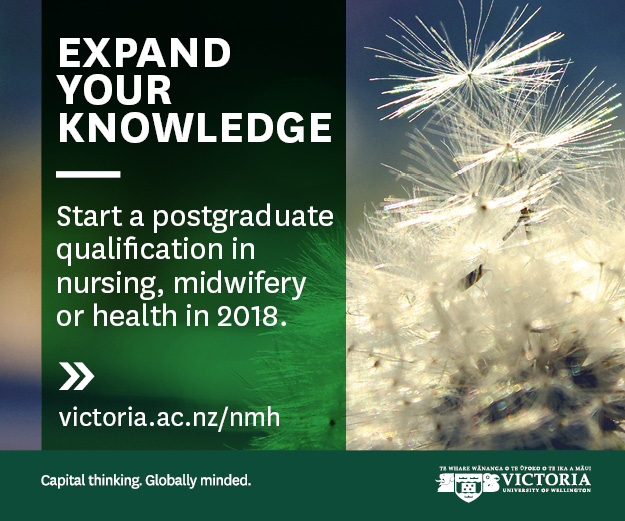Nursing schools around the country are seeking a consensus on what new graduate nurses should be able to do and know at the end of their degree. The initiative could the first step in looking at a national curriculum for the nursing degree.
Sally Dobbs, chair of Nursing Education in the Tertiary Sector (NETS), says the move is partly a response to schools reporting a ‘wee’ drop in nursing degree applications and an increasing number of applicants not meeting the entry criteria.
“So we decided we’d look at developing a national graduate profile (for the nursing degree),” says Dobbs. “That is going to be the stepping stone maybe to other things …as yet undetermined…” But one possibility was revisiting whether there could be a national nursing degree curriculum.
Dobbs said NETS decided at a recent meeting that a good starting point to any national curriculum discussion would be to see whether expectations of what a new graduate nurse should be was similar across the 14 nursing schools covered by NETS.
Every nursing school has to provide a short graduate profile to the New Zealand Qualifications Authority outlining what new graduates should be able to “do, be and know” on completing their nursing degree. Currently one NETS member was collating the schools’ graduate profiles to see how close schools expectations currently were.
Dobbs said the success of the national enrolled nurse diploma (currently being offered by 8 of the 17 schools offering undergraduate nursing degrees) had prompted some discussion about whether to revisit a national degree curriculum to prepare registered nurses.
“We’re just throwing things around,” said Dobbs. “We are saying that students should be prepared for the New Zealand workforce and not just for the local district health board.”
At present the Nursing Council sets out basic curriculum framework requirements (including clinical experience hours) and sets out the education programme standards that schools must use to develop a structured curriculum that enables students to meet the programme outcomes, achieve the registered nurse competencies and be ready to sit the state final exam by the end of their degree.
“We (currently) all deliver our own curriculum but they all lead to the same state final exam,” said Dobbs.
The discussion had also been prompted by application numbers not “being as good as they have been,” said Dobbs. “We actually don’t know why this is happening and that is why we’d thought we’d start with looking at what we trying to say a nurse is.”
The first step was looking at national new graduate profile before discussing moving on to look at bigger steps like discussing national curriculums and attracting people into nursing.
Dobbs said NETS was also developing relationships with the Council of Deans of Nursing and Midwifery which represents the three university nursing schools delivering undergraduate degrees and the fourth school offering a masters degree entry programme to registered nursing.





















I find it a little bit disturbing that we could be pushing toward a national curriculum, a one size fits all, particularly when we already have one that is set by the requirements of NCNZ, i.e. Scopes of practice, competencies and areas of practice for undergraduates . What we have currently gives us opportunities to develop programmes that are able to respond to the health workforce inequities for Pacific and Maori. I come from a history of working in both a BN programme and developing and working in the BNP programme. I have spent the last 13 years going over the same rhetorical questions around what makes our programme BNP and Maori programmes different. Three areas for consideration are the notions of, what counts as knowledge, who gets to define what counts as nursing knowledge and who gets to decide what is appropriate for nursing curricula. In the past most who have had the opportunity to develop curricula are those who hold the hegemonic power. I suggest that we don’t have a national curriculum in which one size fits all , but that all graduate profiles include key specific outcomes that we cover and the rest are specific to our unique programmes and communities we serve. We have been there and done that with a one size fits all approach and the experiment didn’t work for particular population groups. This is two prescriptive, kills creativity and is detrimental to the diverse and complex requirements of the populations we serve. I’m open to discussion on what we need to improve on in relation to what NCNZ already offers. What I am not open to is becoming invisible in the debate on what counts as knowledge and whose knowledge counts in developing nursing curricula. Furthermore I am not interested in contributing to the continuing invisibility and marginalisation of students and their access to nursing programs. National curricula are promoted by those who wish to maintain and increase power of control. These points of view are promoted by those who would see the increasing bureaucratisation of nursing rather than developing a nursing workforce fit for purpose from a health consumers, families or communities perspective.